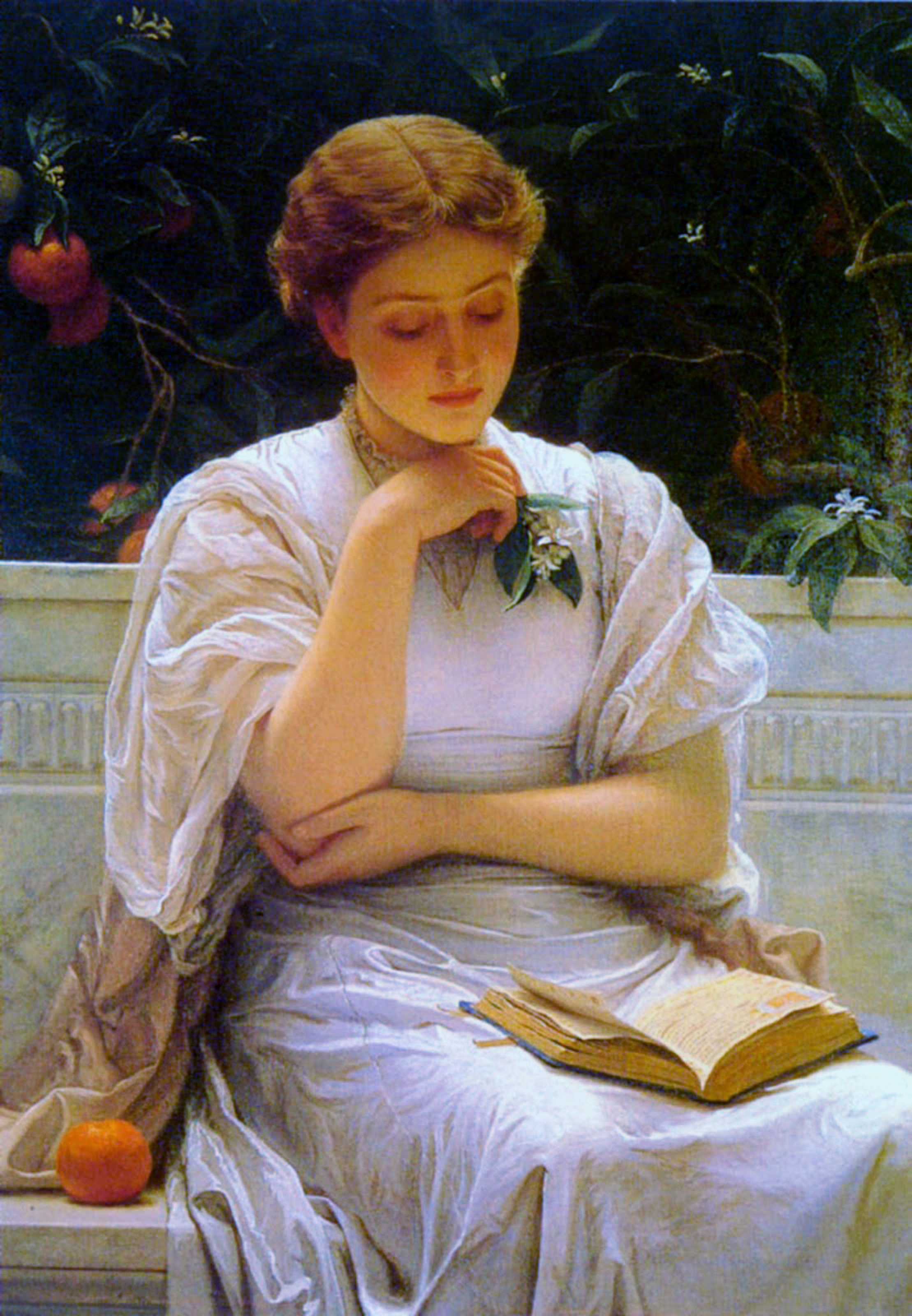Imagination: the forgotten virtue
“I think that the most necessary quality for any person to have is imagination. It makes people able to put themselves in other people's places. It makes them kind and sympathetic and understanding.”
 |
| Girl Reading, by Charles Perugini* |
A while ago I came across the following question on Twitter, from a middleschool teacher: “Can anyone recommend good children’s novels that teach empathy?”
I stared at the screen, thinking, “Don’t they all?”
Isn’t that what makes fiction so great? It allows truths to be expressed about characters--people. It allows us to live in someone else’s shoes, to feel another’s pain, to suffer another’s confusion: to understand.
Imagination--that necessary element to understanding--is a forgotten virtue. “Everyone knows” that childhood illiteracy is a major problem these days, but it isn’t merely for the reason that we’re raising people who will lack the knowledge and opportunity to succeed in the world. What’s scarier to me is that we’re raising people who don’t know how to imagine and who don’t bother to try to understand.
It's not just reading that is important--reading fiction is important.
Something to think about the next time someone asks you why you *bother* to write for kids...
*Some random trivia: The artist of this painting, Charles Perugini, was married to Kate Dickens, the daughter of Charles Dickens--who knew a thing or two about using fiction to foster understanding...
Such an interesting question and such a wise answer, I completely agree that all fiction teaches us empathy.
ReplyDeleteThanks, Melissa!
DeleteVery good point! Another reason to read, read, read to your kids and with your kids lots of fiction. I hadn't thought of it that way before. I've had kids who just like to read nonfiction, and guess what - they seem to be the less "empathetic" kids with more difficulty forming attachments. Does one cause the other, or is it a symptom?
ReplyDeleteThat's very interesting, Donna. I can't answer your question...but I think if the symptom is present, it's probably a good idea to counter it in any way possible. I know a young boy who naturally had a very difficult time with empathy, but I'm beginning to see it grow in him as his reading has changed from entirely science/non-fiction to some great stories. I know it's possible he's just maturing, but I do believe there's a connection.
DeleteThat's a really beautiful painting. I agree that all fiction teaches empathy. You're right, though, that the imagination is often put on the back burner. Education is always so focused on math and science, as it should be. But reading and imagination are just important. Imagination is what helps us think outside the box, solve problems in a healthy way, and walk around in another's shoes on the road to understanding. Sadly, our society doesn't see it that way.
ReplyDeleteHappy reading and writing! from Laura Marcella @ Wavy Lines
Absolutely. Thanks for your input, Laura.
DeleteVery true, Faith. But I'll go as far to say that ALL types of books help us to become empathetic. Biographies in particular. History. I just finished Bomb by Steve Shenkin (sp?) and boy does one get insight into why a person might risk his life to fight a seemingly unwinnable battle, or why a person might become a spy.
ReplyDeleteI definitely agree about biographies--is it just me, or does it seem like they are often more overlooked than fiction these days? I'm reading Bomb right now, and you're right--it definitely gets you into the head of people you'd never think of empathizing with normally.
DeleteYes! Exactly! They ALL teach empathy. That's the most important function of fiction.
ReplyDeleteThe decor on the inside of the restaurant is absolutely beautiful.
ReplyDeleteBrazenhead is a great place to go with your family or for
a business lunch or dinner, but if you are looking for a party atmosphere, this isn't it. 28.
Feel free to visit my webpage: clever pub quiz names
Excellent point, Faith! All children's books (well, all good ones) should teach empathy. I used to hate fielding questions like that from customers at the bookstore. I'd look around that vast children's department (no longer in existence) and draw a blank. How could I pick one book over another?
ReplyDelete